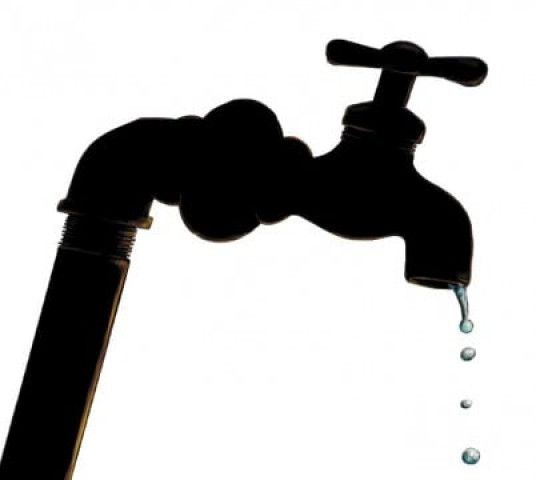Who has bigger problems?: KWSB, residents get together to discuss each other’s issues
Urban Resource Centre organises sit down.

When residents met Karachi Water and Sewerage Board (KWSB) officials on Wednesday, they had a list of similar complaints. Some fussed about severe water shortages in their areas, while others protested illegal connections and favouritism towards certain residents.
The water board’s officers heard people’s pleas at a seminar at the Urban Resource Centre (URC) on Wednesday. However, what the people did not realise is that the organisation is facing problems greater than theirs.
KWSB Managing Director Misbahuddin Farid candidly told the people that the organisation does not have the resources to start development plans. “How can we provide water to a city that is vastly expanding?” he asked.
According to Farid, the city is currently facing a shortage of 240 million gallons per day. Karachi has a rate of 25 litres per capita, while most developing countries usually have at least 35 to 45 litres per capita.
Farid identified the city’s distance as one of the multiple issues faced by KWSB. “Since the city is so spread out, we have to pump water from great distances. This increases our electricity expenses and because of the distance, there is evaporation and leakages,” he explained. The fact that the city is 17 feet below sea level is also problematic since the water is easily contaminated with sewerage water, he added. The MD went as far as admitting that his employees are sometimes involved in corruption related to illegal connections.
However, the main concern that the water board is battling with is revenue since there are only 260,000 people who pay their bills out of the total population.
“The rest have not paid water board bills for the last 25 years,” he said. He also pointed out that KWSB’s tariff is very low. “Our system of taxes is very irrational and this leads us towards organisational deterioration,” he explained. Farid understands the issue can be handled by increasing the tax net instead of increasing the tax. One of the attendees, Muhammad Ali, was testimony to this fact. Ali, a resident of a society in Gulshan- e-Iqbal, said his area of 100 flats was not being supplied with water but when all the bills were cleared, their supply was resumed.
Unlike Ali, Tehseen, a resident of Buffer Zone, complained of inflated bills. “Although my neighbours are willing to pay the bill, they got accumulated bills between Rs35,000 and Rs50,000. Obviously no one could pay the bill,” she said.
Farid responded by saying that the board is launching a new scheme to make people pay on a monthly basis, much like the Karachi Electric Supply Company.
“The things that are currently our top priority are our employees’ salaries, chlorination and filtration and medical facilities,” he said.
Published in The Express Tribune, June 16th, 2011.



















COMMENTS
Comments are moderated and generally will be posted if they are on-topic and not abusive.
For more information, please see our Comments FAQ